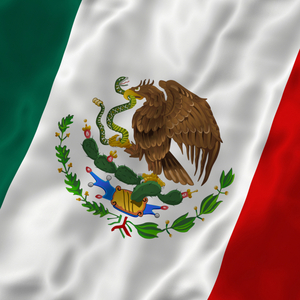Mexican government issues ethanol blending regulation

August 29, 2016
BY Growth Energy, Renewable Fuels Association, U.S. Grains Council
The Energy Regulatory Commission of Mexico published its recently-passed fuel regulation (NOM-016-CRE-2016) in the Mexican federal register on Aug. 29, allowing for the blending and sale of up to 5.8 percent ethanol in the nation’s fuel supply outside of the three major metropolitan areas of Mexico City, Guadalajara and Monterrey.
The fuel specification will become effective 60 days after publication, marking the first time in history that Mexico has established a policy on ethanol. Organizations in the United States working to promote the export of U.S.-produced ethanol applauded this development by its close trading partner.
“By approving new fuel standards that allow for ethanol blending at a 5.8 percent rate throughout much of the country, the Mexican Energy Regulatory Commission has taken an important step forward in improving the quality of motor fuel provided to its citizens,” said Emily Skor, CEO of Growth Energy.
Advertisement
Advertisement
“These standards aren’t applied universally throughout the entire country, however, so there is certainly more progress to be made. Ethanol is a cleaner burning fuel additive that increases octane and reduces reliance on toxic cancer-causing additives. Our collective goal should be greater harmonization across all of North America on fuel regulations that embrace cleaner burning biofuels like ethanol because that is in the best interest of every mother, father and child. Growth Energy will continue to work with our public and private sector colleagues in Mexico to clearly demonstrate the value of ethanol to their environment, water quality, rural sector and consumers.”
“We are pleased to see Mexico begin to embrace the inclusion of fuel ethanol in their gasoline. The U.S. Grains Council has worked in Mexico for many years and has seen enormous growth in that market’s demand for U.S. products of all types in the past two decades. We welcome this positive development related to ethanol use and what it could mean for furthering of the U.S.-Mexican trade partnership,” said Tom Sleight, president and CEO of the U.S. Grains Council.
Advertisement
Advertisement
“We look forward to continuing to work with our colleagues in the U.S. ethanol industry to provide Mexican regulators, fuel industry officials and the public with information that highlights the proven benefits ethanol can provide for air quality and rural economic development in their country. We are hopeful that all of Mexico will be able to achieve these benefits from ethanol use soon.”
“The Mexican Energy Regulatory Commission should be commended for recognizing the positive role ethanol can play in advancing that country’s energy, economic and environmental policies. Ethanol blended gasolines can reduce all criteria pollutants—carbon monoxide, ozone, particulates and toxics. As a result, we believe the Commission has erred in excluding ethanol use from the three most populous cities,” said Bob Dinneen, president and CEO of the Renewable Fuels Association.
“We will continue to work with our partners here and the Mexican government to assure the most up-to-date science is applied, providing the Commission with confidence the use of ethanol will help them in their effort to fight ozone pollution and provide a more open and competitive market for the benefit of Mexican consumers.”
Related Stories
The USDA has announced it will delay opening the first quarterly grant application window for FY 2026 REAP funding. The agency cited both an application backlog and the need to disincentivize solar projects as reasons for the delay.
CoBank’s latest quarterly research report, released July 10, highlights current uncertainty around the implementation of three biofuel policies, RFS RVOs, small refinery exemptions (SREs) and the 45Z clean fuels production tax credit.
The U.S. EPA on July 8 hosted virtual public hearing to gather input on the agency’s recently released proposed rule to set 2026 and 2027 RFS RVOs. Members of the biofuel industry were among those to offer testimony during the event.
The U.S. exported 31,160.5 metric tons of biodiesel and biodiesel blends of B30 and greater in May, according to data released by the USDA Foreign Agricultural Service on July 3. Biodiesel imports were 2,226.2 metric tons for the month.
The USDA’s Risk Management Agency is implementing multiple changes to the Camelina pilot insurance program for the 2026 and succeeding crop years. The changes will expand coverage options and provide greater flexibility for producers.
Upcoming Events










